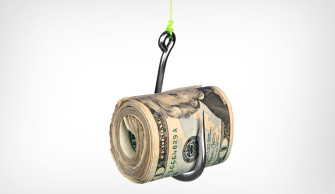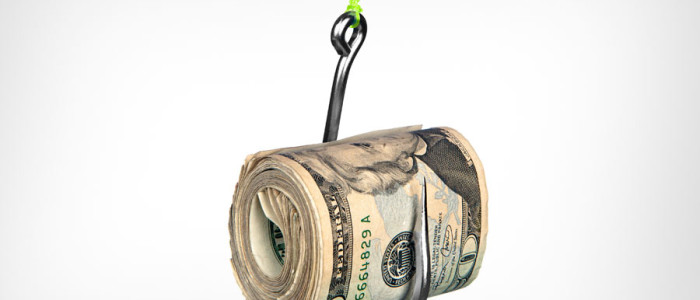Beware: Tax Fraud Scams
 Whether you’re gleefully expecting a refund or dreading writing that IRS check, scammers hit full throttle as you gear up for tax season, continuing through April 15 (and even afterward). Here’s how to stay clear of them.
Whether you’re gleefully expecting a refund or dreading writing that IRS check, scammers hit full throttle as you gear up for tax season, continuing through April 15 (and even afterward). Here’s how to stay clear of them.
Mail Thievery
In the last few weeks, tax-filing documents from employers, banks and financial firms have been sent to your mailbox. Late January through mid-February provides ideal opportunity for mail-stealing crooks to retrieve documents detailing personal information — including your Social Security number — so they can open fraudulent credit accounts in your name. Employers are required to mail W-2 and 1099 forms by Jan. 31, but banks and brokerage firms may have later deadlines. If you’re not home to quickly retrieve mail when it’s delivered, think about asking a trusted at-home neighbor to do it. Or consider installing a locking mailbox or renting a P.O. box or having your mail held at the post office for personal pick-up. At the very least, pay close attention to which expected tax documents have arrived and when; if they’re not received by mid-February, call the sender to ask why.
IRS Impersonators
Tax Man tricksters typically begin a campaign of phony phone calls and bogus emails as tax-filing season arrives. So beware of people claiming to need your personal information (such as your Social Security number), reporting a “problem” with past returns, or promising “new” or “updated” tax formssent by email. Click to download these “forms” and you may well be downloading malware. The IRS does not initiate taxpayer communications through email, so don’t respond — or click on links. If you get an unexpected phone call claiming to be from the tax agency, hang up and call the IRS at 800-829-1040 to check its authenticity. Legitimate tax correspondence will arrive by U.S. mail in a sealed envelope. So beware of trash mailings like one that appears to suggest an impending tax audit -— but actually is bait to sell “audit protection services” for up to $50 per month.
Rip-Off Refunds
In recent years, billions of dollars in refunds have been collected by scammers who e-file fraudulent returns under the identities of legitimate taxpayers. This scam is often conducted by street gangs who attend classes held by identity thieves. They don’t need W-2s or other supporting documents, just basics like your name, SSN and birthdate — and a computer. Your refund may end up direct-deposited into a bank account temporarily used by the scammer under the false identity, mailed out as a treasury check (often to a vacant home) or preloaded on a debit card, with which the money can be withdrawn from an ATM. Learn more details about this phone scam and how to protect yourself. To avoid having your refund fall into the wrong hands, file early. Tax ID scammers tend to begin filing bogus returns by mid- to late-February — if you’ve already filed, they can’t get your money. And if you mail your tax return, put it in a secure mailbox or hand it to a mail carrier. Don’t leave it for pick-up in your home mailbox.
Bad Advice
Have you been promised “free” government money or “secret” tax breaks if you’ll file new paperwork with the IRS? Don’t believe it. These and other conning claims are the calling cards of unscrupulous tax preparers who seek easy money at your expense — assuming they’re not outright scammers intent on stealing information from your tax forms to commit identity theft or sell that data to other fraudsters on the black market.

